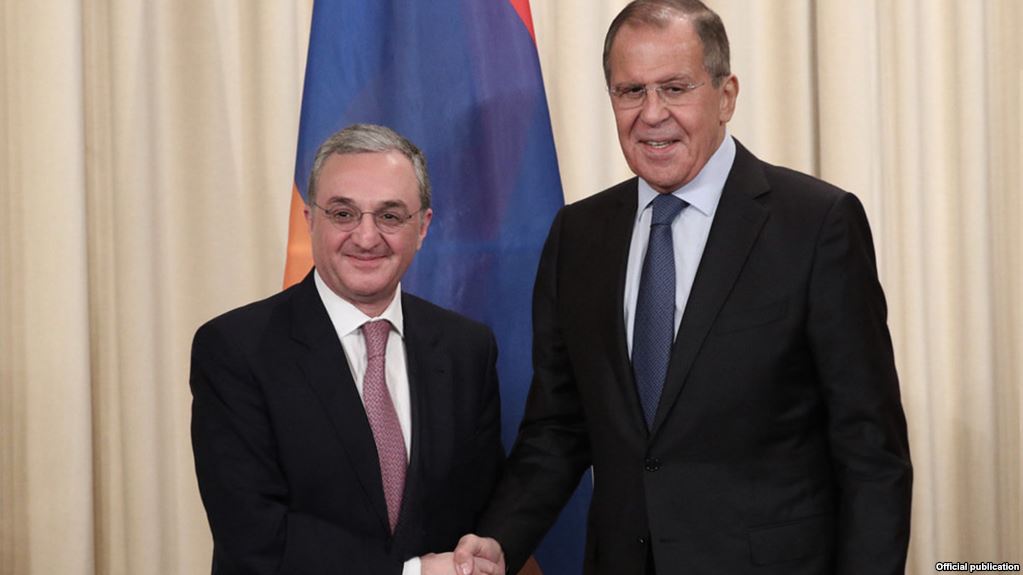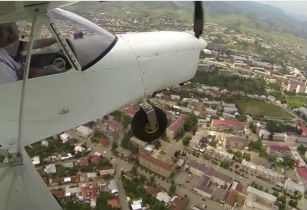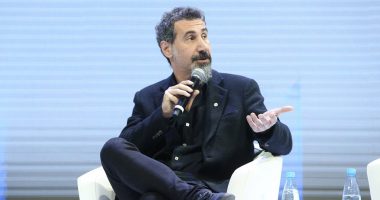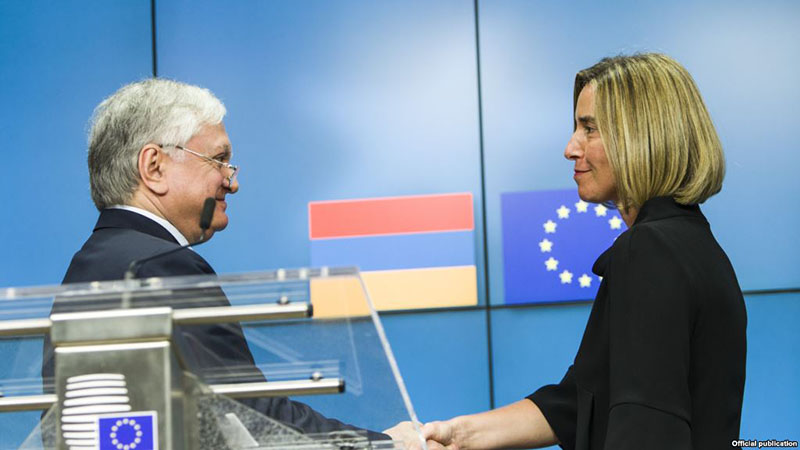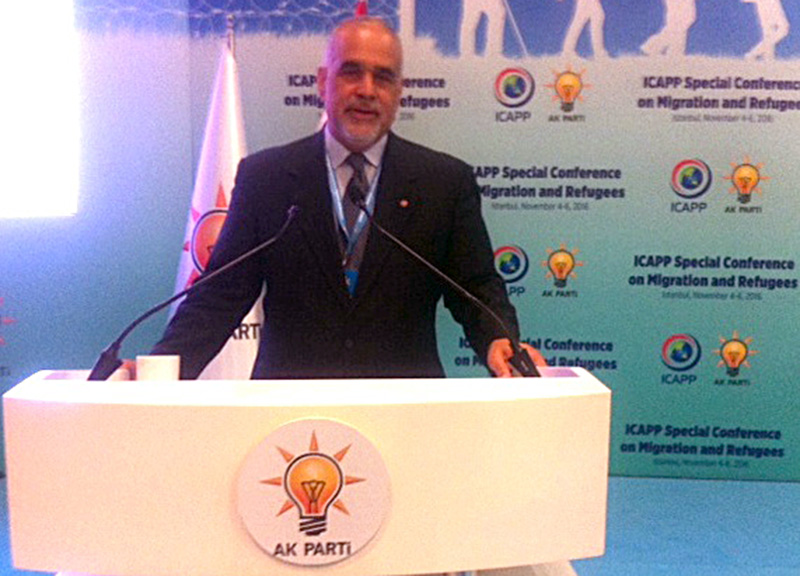MOSCOW (RFE/RL) — Russia’s Foreign Minister Sergey Lavrov praised the current state of Russian-Armenian relations after holding what he described as “good” talks with his new Armenian counterpart Zohrab Mnatsakanian in Moscow on Thursday.
“We held good, constructive and trustworthy negotiations in the spirit of allied relations binding our states,” Lavrov told a joint news briefing following the meeting.
“I would like to express my satisfaction with the results of the negotiations which I am sure will contribute to the further advancement of allied relations between Russia and Armenia,” he said.
Lavrov said he and Mnatsakanian discussed, among other things, commercial ties between their nations. “Russia remains Armenia’s leading [trading] partner,” he said. “Our trade grew by 30 percent last year. This positive dynamic continued into this year. Growth [in bilateral trade] reached nearly 40 percent in the first quarter.”
“We closely cooperate and coordinate our actions in the international arena,” added the chief Russian diplomat.
“Our relations really have a quite strong foundation,” Mnatsakanian said, for his part. He reaffirmed the new Armenian government’s stated commitment to deepening them further.
Prime Minister Nikol Pashinian has repeatedly said in recent weeks that he will not pull Armenia out of the Eurasian Economic Union and the Collective Security Treaty Organization despite his criticism of the two Russian-led blocs voiced in the past.
Pashinian assured Russian President Vladimir Putin that Armenia will remain allied to Russia during his tenure when they met for the first time in Sochi on May 14. For his part, Putin told Pashinian that he regards Armenia as “our closest partner and ally in the region.”
Lavrov spoke of “important agreements” reached by Putin and Pashinian in the Russian Black Sea city. But he did not elaborate.
Pashinian’s cabinet underlined the “strategic and allied” character of Russian-Armenia ties in its policy program debated by the Armenian parliament on Thursday. The program says that military cooperation with Russia will remain an “important component” of Armenia’s national security strategy.
The Nagorno-Karabakh conflict was also on the agenda of Lavrov’s talks with Mnatsakanian. The Russian minister said that Moscow will continue to seek a peaceful settlement of the dispute together with the two other mediating powers, the United States and France.
The Russian, U.S. and French diplomats co-chairing the OSCE Minsk Group are due to visit Yerevan next week for what will be their first face-to-face contacts with the new Armenian leadership.
Speaking during Thursday’s parliament debate, Pashinian renewed his calls for Karabakh’s direct involvement in Armenian-Azerbaijani peace talks. He claimed that he has no mandate to “negotiate on behalf of the Karabakh people.” The Armenian premier said at the same time that he is “ready to negotiate Azerbaijan’s President Ilham Aliyev.”
Official Baku was quick to denounce Pashinian’s remarks and reiterate that it will not directly negotiate with the Karabakh Armenians. An Azerbaijani Foreign Ministry spokesman said that Karabakh is an Azerbaijani territory occupied by Armenia.
Lavrov said in this regard: “If Baku and Yerevan decide that Karabakh must return as a negotiating party Russia as well as the two other co-chairs of the Minsk Group will support that decision.”

